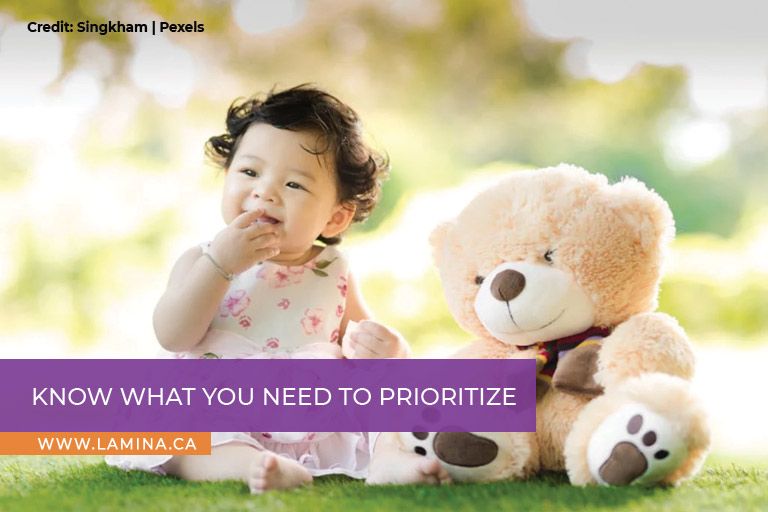The journey of pregnancy is a transformative one, filled with hormonal shifts and a constantly changing body. It's perfectly normal to experience a range of emotions throughout this time, from elation to anxiety. Here’s how to avoid feeling overwhelmed:
Schedule regular prenatal massages, meditate, or simply take a long bath with a good book. Remember, a happy and healthy parent translates to a happy and healthy baby.
Open communication with your partner is essential. Share your fears and anxieties, and seek support from other expecting parents. Talking therapies or joining prenatal yoga classes can be a great way to connect with others on a similar journey.
Many new parents experience a temporary
dip in mood after childbirth. This is different from postpartum depression and typically resolves within a few weeks. Recognizing the signs and reaching out for support is crucial.
- Acknowledge your anxieties
It's natural to worry about the future. However, don't let anxieties paralyze you. Educate yourself about childbirth and baby care. Talk to your doctor about any concerns you have. Reading parenting books and attending childbirth classes can significantly reduce anxiety.
Preparing for Your Little One's Arrival: A Pregnancy Checklist
Here's how to ensure you're ready for the exciting journey ahead, both physically and financially:
1. Prenatal Care and Insurance
Research and choose a healthcare provider you trust. Understand your insurance coverage for prenatal visits, delivery, and newborn care. If gaps exist, research supplemental insurance options.
2. Research Childcare Costs
Whether you opt for daycare, a nanny, or in-home care, research costs in your area. Factor these potential expenses into your budget.
3. Know the Essentials
With a baby on the horizon, it's tempting to go on a shopping spree and equip yourself with every gadget and gizmo ever invented. However, a focus on essential needs will serve you well. Here's what you absolutely need, along with some budget-friendly tips:
A safe and comfortable crib, a snug-fitting sleep sack, and plenty of soft organic cotton blankets will ensure your little one sleeps soundly. Consider buying a used crib in good condition to save money.
Invest in good quality, reusable cloth diapers or eco-friendly disposable options.
Whether you plan to breastfeed or bottle-feed, research the different options and choose what works best for you. Purchase a few bottles, a breast pump (if needed), and breastfeeding supplies.
Don't go overboard! Opt for comfortable, easy-to-change outfits like onesies. Babies grow quickly, so consider buying a few sizes larger and borrowing clothes from friends or family.
4. Take Advantage of Second-Hand Finds
Consider gently used baby clothes, furniture, and toys. They're often in excellent condition and significantly cheaper.
Online marketplaces and consignment shops are great resources.
5. Register Strategically
Create a baby registry, but prioritize needs over wants. Focus on practical items, registering for higher-priced items only if comfortable. Consider adding experiences to your registry, like a post-partum massage or a family photo session.
6. Prioritize Experiences
While material possessions are tempting, invest in experiences that create lasting memories, such as family outings or vacations.
7. Start a Family Budget
If you have older children, involve them in creating a family budget. This teaches them financial responsibility and fosters a sense of shared ownership.
8. Build an Emergency Fund
Unexpected medical expenses can arise. Aim to save a few hundred dollars to cover unforeseen costs.
9. Communicate
Talk openly with your partner about finances, income expectations, and budgeting plans. This fosters transparency and avoids financial stress later.
10. Consider Financial Assistance
Look into government programs or employer-provided benefits for expecting parents. Research eligibility requirements for childcare subsidies or pregnancy-related financial assistance.
How to Build a Budget for Your Baby
A realistic budget becomes your roadmap to parenthood without financial strain. Here's how to get started:
- Track Your Income and Expenses
Create a budget spreadsheet or use budgeting apps. Accurately track your income sources and monthly expenses for the past three months. This provides a clear picture of your financial situation.
Divide your expenses into essential categories like housing, utilities, food, transportation, and debt payments. Allocate a separate category for baby-related costs, including diapers, wipes, clothes, and childcare (if anticipated).
- Identify Savings Opportunities
Review your spending habits. Look for areas where you can cut back – maybe it's eating out less or canceling unused subscriptions. Every bit saved helps!
- Prioritize Needs over Wants
Differentiate between necessities and non-essentials. Focus on budgeting for diapers, milk, and a safe crib before splurging on a designer baby carrier.
- Factor in Unexpected Costs
Babies are unpredictable! Include a buffer in your budget for unforeseen expenses like doctor visits or medication.
Your budget is not set in stone. Monitor your spending and adjust allocations as needed. Unexpected costs may arise, and your baby's needs will evolve.
- Identify Responsible Financing
If a temporary financial bump occurs, and budgeting adjustments aren't enough, responsible financing options like
personal loans in Canada can be a good option. Always prioritize responsible borrowing. However, only consider this route as a last resort and ensure you can comfortably afford the repayments. Exhaust all other options before considering a loan.







